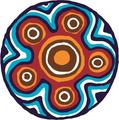Prep Term 3 Overviews

Prep Term 3 Overview
To all our wonderful Prep families,
Welcome to term 3!
Reading
In reading, students will focus on comprehension strategies, inferring, visualising, making connections and monitoring. Students will continue to practise making text to self-connections and inferring characters’ feelings using pictures as well as what characters say and do. Students will practise using strategies to monitor their reading by asking ‘does that sentence make sense?’ re reading the text if it does not make sense.
Students will continue to summarise texts by retelling the important parts of a fiction or non-fiction text. Students will continue to practise sharing their thoughts about texts by identifying their favourite events or characters, or facts they found interesting in non- fiction texts.
Following on from last term, students will build on and apply their knowledge of letter sound relationships when solving unknown words in texts and will continue to practise their DCC common words.
Writing
Their writing shows evidence of letter and sound knowledge, beginning writing behaviours and experimentation with capital letters and full stops. They correctly form all upper- and lower-case letters.
In Term 3, there will be a focus on writing more detailed sentences with an emphasis on word choice by using the description bubble. For Presentation, students will explore the different ways to present their writing through images, symbols and performance. Students will use familiar words and phrases to develop their ideas into written or drawn texts taking inspiration from dreamtime, fairy tales and poetry. They will use their letter and sound knowledge to have a go at writing unfamiliar words.
Students will continue to develop their 5-star writing, focusing on stretching sounds in words, using their DCC words, using finger spaces, including a capital letter at the start of each sentence, and ending the sentence with punctuation. They will continue to practise correctly forming all upper- and lower-case letters.
Numeracy
In numeracy students will use mathematical language to compare objects lengths, mass and capacity. Students will focus on giving statements and gestures to describe location. They will practise giving and receiving directions from their peers.
Students will continue to explore data and statistics through asking yes or no questions and representing their answers in graphs. Students will expand their understanding of 3D objects by comparing their common and distinctive features to objects in their environment.. Students will deepen their understanding of numbers 0-20 by matching objects to each number, identifying more and less, placing these in order and breaking them into parts. Students will explore the value of money and everyday financial situations through shop play.
Inquiry
In Inquiry, students will engage in a 2 week inquiry cycle exploring Indigenous Australian cultures and stories. Prep students will be investigating storytelling and will integrate the learning through Reading, Writing, Mathematics and Social and Emotional Learning areas. We will focus on the questions.
Students will have the opportunity to explore storytelling in different ways whilst exploring different fairy tales. Students will explore a history unit about change. Our In query questions for this unit is ‘How do things change,’ They will compare their life to their parents' lives and discuss what is different, what is the same and how it has changed over time.
Social and Emotional Learning (S.E.L)
In Social and Emotional Learning, students will continue to practise the school rules of being Safe, Respectful and Striving for Excellence. Students will be prompted to ‘do turtle’ when they’re feeling upset and use the Wheel of Choice to solve social problems.
Through our various S.E.L programs, students will learn about self-control, sharing and friendship. They will understand and be accepting of different ideas, experiences and interests. Students will also be encouraged to problem solve and be active in asking for help when they need it from teachers.
Ways to Help Your Child At Home:
Home Reading - Please ensure that your child is reading every night at home and talking to a family member about the book. Please see your child’s homegroup teacher if you are having trouble accessing Reading Eggs or Wushka.
During nightly reading, we encourage you to practise your child’s DCC words. Before after and during reading, we encourage you to ask your child questions about what they have read to help develop their comprehension skills.
Learning Goals - Your child’s individualised learning goals are listed on Compass. There is a reading goal, a maths goal, a writing goal and an Inquiry or SEL goal for your child. Please read these and support your child by going through the suggested strategies to help at home. These goals are changed every five weeks, and you will also be informed of your child’s achievement of these goals. If you have any questions regarding your child’s goals, please organise a meeting with your child’s teacher.
